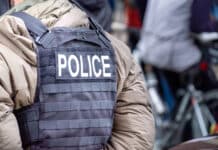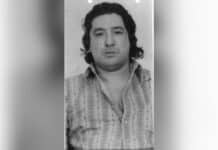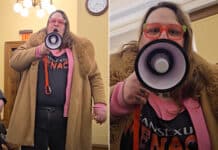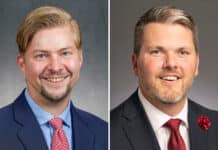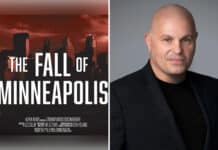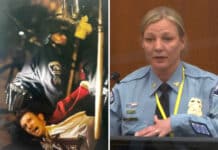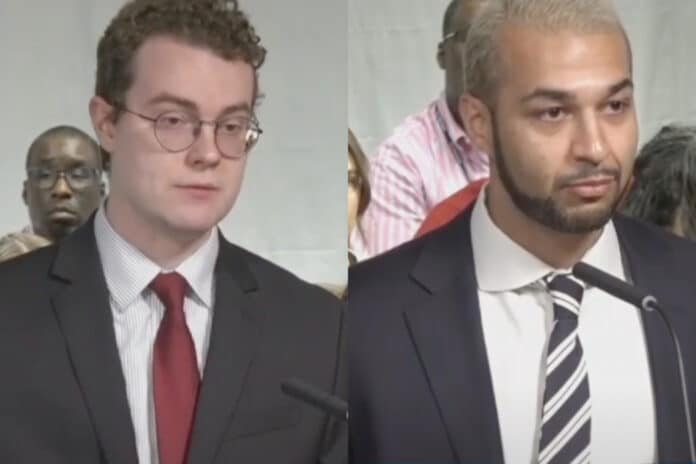
In a committee meeting earlier this week, Minneapolis City Council members heard testimony from a left-wing activist group that wants to end the use of ShotSpotter technology as a gunshot detection tool for the Minneapolis Police Department.
Committee Chair Robin Wonsley kicked off the meeting noting that recently other cities like Chicago have ended their contracts with ShotSpotter “due to concerns around effectiveness and racial biases,” and that this discussion could help concerned residents understand the “overall impacts of ShotSpotter in Minneapolis.”
University of Minnesota law student Alexander Lindenfelser of the Legal Rights Center spoke at the meeting along with representatives from Campaign Zero, an organization whose goals include “diminishing the power of police” and “dismantling our criminal legal system.” The organization was co-founded by DeRay Mckesson, who describes himself as a a “key leader in the Ferguson Uprising in 2014 and a leading voice in the Black Lives Matter Movement.”
As Councilwoman Wonsley noted, this organization supported Mayor Jacob Frey’s office in reviewing the city’s no-knock warrant policy, and currently has a nationwide campaign designed to either encourage cities to end their contracts with ShotSpotter or discourage them from using the technology.
“The data shows that ShotSpotter technology disproportionately impacts our black and Native communities,” said Lindenfelser, noting that in Minneapolis “black and Native residents are 3.3 times more likely to live in areas with ShotSpotter coverage than white residents.”
According to Lindenfelser, “The money Minneapolis spends on ShotSpotter could be used to fund effective and restorative public safety programs.”
Abdul Rad from Campaign Zero also gave a presentation to the committee in which he repeated some of the points made by Lindenfelser and claimed that ShotSpotter leads to “more police encounters with civilians” because it can mistake loud noises for gunshots. He also claimed ShotSpotter does not have an impact on gun violence and can slow 911 response times.
“I believe everyone in this room shares the same number one priority which is that we want to advance safety for all, especially people most impacted by its absence, and we want to do it in a way where the system is causing as little harm as possible. I do believe that’s the case for even the Minneapolis Police Department,” Rad said.
“I think that ShotSpotter, though, is always, unfortunately, their number one priority will always be their shareholders. They will continue to lobby and mislead and increase their stock price,” he added.
Not all committee members found the presentations persuasive. Councilwoman Linea Palmisano noted that “this feels a lot more like an advocacy presentation [than] an unbiased informational presentation that I’m accustomed to receiving at City Council.”
Addressing claims that ShotSpotter harms minority communities by being placed more often in those communities, she said, “Sadly, gun violence disproportionately impacts our black and brown and Native communities. I don’t think it’s ShotSpotter that’s negatively impacting those communities.”
“Are people affected by ShotSpotter, or are they affected by gunshots, which activate ShotSpotter?” she asked.
Later in the meeting, Councilwoman Palmisano asked that members of the Minneapolis Police Department who were present, including Chief Brian O’Hara, be allowed to speak at least briefly to give their thoughts on the presentation and explain how ShotSpotter is used in practice by Minneapolis police.
Committee Chair Wonsley denied this request, saying, “I do not think we have to invite staff up at this moment” to respond to the presentation, and that she would offer them time in another meeting of the Administration & Enterprise Oversight Committee to respond and present their own information.
After the meeting, Chief O’Hara responded by saying he’s “Looking forward to … having a chance to respond to this [presentation] … which included demonstrable numerical falsehoods.” He added that “When seconds count … there’s no question this technology helps us save lives.”
Shane Hachey
Shane Hachey is a journalist and blogger based in the Twin Cities. He covers national politics, race, and local issues. Prior to that, he studied history at Columbia and law at Harvard Law School, and he was an Army Military Policeman for five years stationed in Germany, Yugoslavia, and Fort Hood, Texas.


